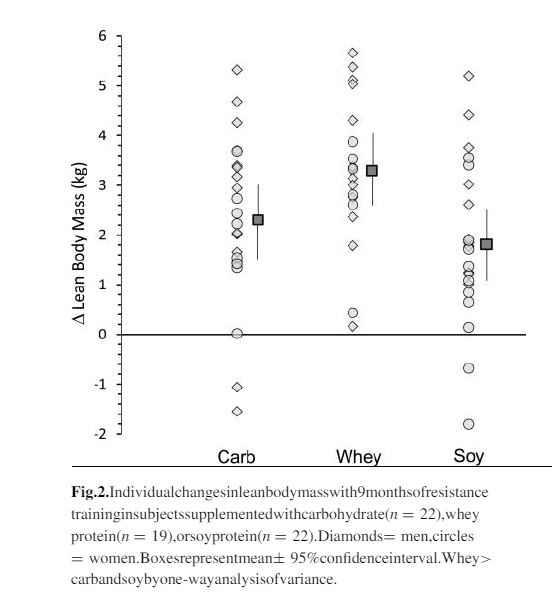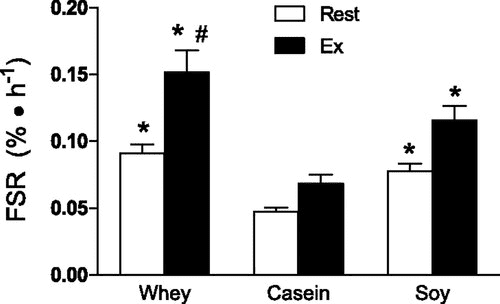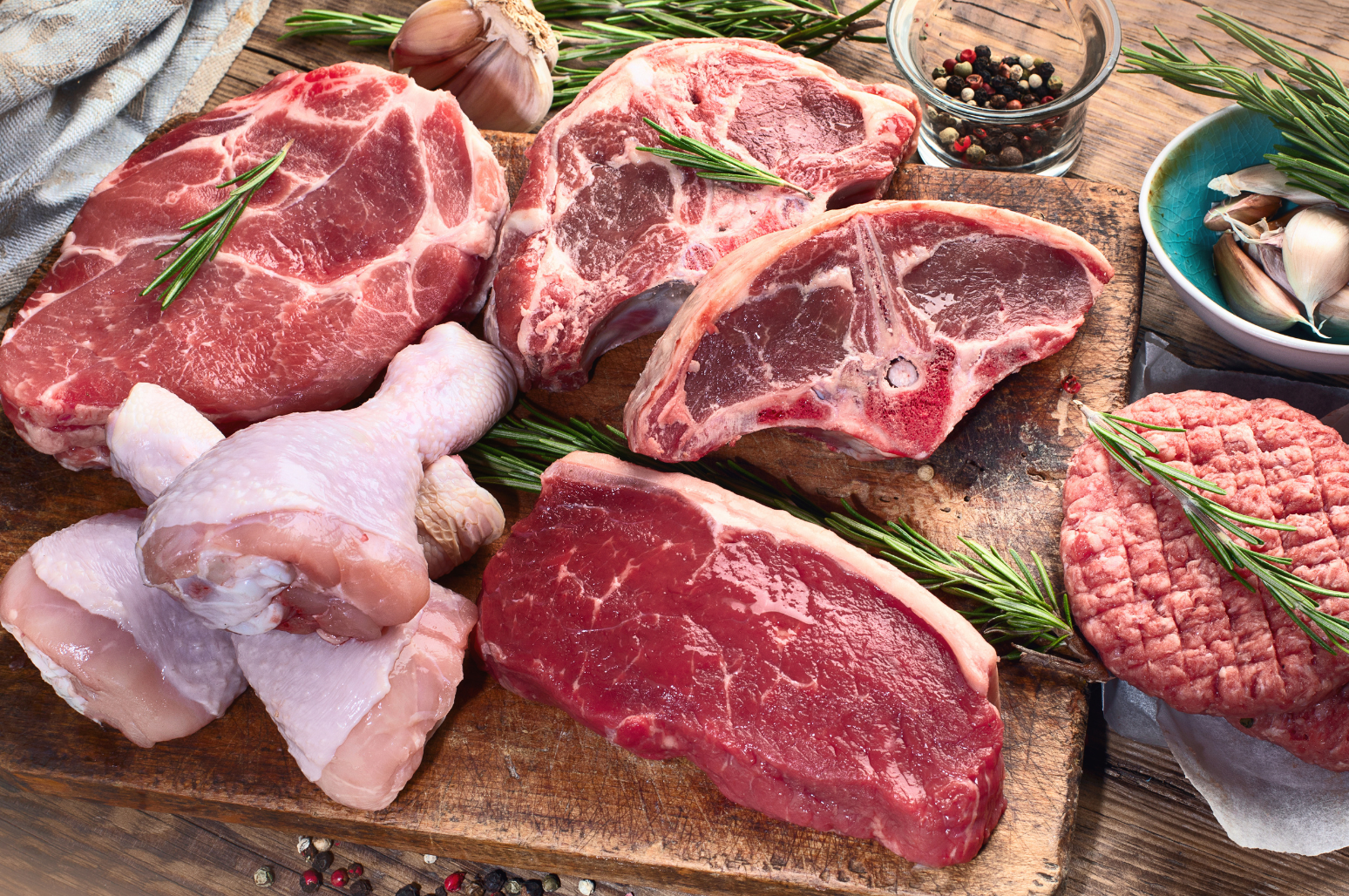
Soybeans are a popular food that can be consumed whole or transformed into a range of products, including tofu, soy milk, tempeh, and various meat and dairy alternatives. Soybeans can also be used to make soy protein powder. Many vegetarians and vegans and those who are allergic to dairy often eat soy protein.
You’ve probably heard some of the controversy surrounding soy. Some consider it a nutritional powerhouse, and others claim it can have negative effects on health. Let’s take a closer look at soy protein.
Soy Protein Isolate
To make soy protein isolate, defatted soybean flakes are washed in water or alcohol to take out the dietary fiber and sugars. The flakes are then dehydrated and turned into a powder. The end result contains little fat and no cholesterol.
Soy protein powder is often used in infant soy formula and numerous dairy and meat alternatives. One ounce (28 grams) of soy protein isolate powder provides 95 calories, 2 grams of carbs, 1.6 grams of fiber, and 23 grams of protein. It also gives you copper, manganese, phosphorus, and other nutrients [1].
Is Soy an Effective Protein Choice?
Soy protein is a more complete protein compared to other plant-based proteins. It contains the essential amino acids your body must obtain from food. Each amino acid is important for muscle protein synthesis, but branched-chain amino acids (BCAAs) are the most vital for muscle building [2] [3]. Soy is somewhere in the middle when it comes to muscle protein synthesis. One study revealed soy was inferior to whey protein with regards to synthesizing protein, but it performed better than casein [4].


A review study showed whey protein supports muscle protein synthesis better than soy protein in young and older adults [5]. Combining proteins like whey, casein, and soy might be superior to just consuming soy protein alone [6].
What About the Health Effects of Soy?
Much of the research is mixed, but soy might have some health benefits.
Studies show high-protein diets can result in weight loss, even without restricting nutrients or calories [7]. One study of people with obesity and diabetes showed soy protein-based meal replacements, such as shakes, might be more effective than standard weight-loss diets. Those who ate the soy-protein based meal replacement lost an average of 4.4 pounds more than those on the standard diets [8]. Soy foods also appear to have positive effects on heart health. One review of 35 studies found eating soy lowered ‘bad’ LDL cholesterol and raised ‘good’ HDL cholesterol [9].
With cancer, the results are mixed, and more research is needed to draw a clearer conclusion. Some case-controlled and observational studies link soy intake to a reduced risk of breast cancer [10] [11]. Other studies show no protective effect, and one study even connected soy intake to stimulated rapid cell production in the breasts of premenopausal women, which could possibly indicate an increased breast cancer risk [12] [13].
It’s also important to note that many studies are based on soy foods rather than soy protein powder.
What About Phytates and Phytoestrogens?
Soy protein contains phytates or antinutrients. Phytates reduce mineral absorption. Unless your diet is severely imbalanced, most health experts don’t believe the phytates in soy will negatively affect your health. Experts believe soaking and sprouting soybeans reduces the antinutrients [14] [15].
Concerns are raised about the phytoestrogen content of soy, which might disrupt natural hormone levels in the body. Phytoestrogens are naturally occurring plant chemical compounds with estrogen-like properties. These phytoestrogens bind to estrogen receptors in the body, and soy is a considerable source of phytoestrogens [16].
Soy protein powder is made from soybeans rinsed in water and alcohol, which removes a large portion of the phytoestrogen content [17].
Wellness advocates also raised concerns about genetically modified (GMO) soy products and soy protein powders, which make up the bulk of commercially available soy products; however, there isn’t enough research to support these concerns.

Wellness advocates also raised concerns about genetically modified (GMO) soy products and soy protein powders, which make up the bulk of commercially available soy products; however, there isn’t enough research to support these concerns.
Concluding Thoughts
Like all foods, soy might not be suitable for everyone. Many people with certain medical problems, food sensitivities, or autoimmune diseases avoid or limit soy and soy products.
Soy protein can provide a good source of plant-based protein for people who don’t eat animal proteins. Soy could be a key source of nutrients for some people [18].
If you have concerns about soy, you could try avoiding it for some time before adding it back into your diet and assessing how you feel.
Do you eat soy on your ketogenic diet?
References
Self Nutrition Data. Soy Protein Isolate Nutrition Facts & Calories. Soy protein isolate Nutrition Facts & Calories (self.com)
Blomstrand, E., Eliasson, J., Karlsson, H. K. R., & Kohnke, R. (2006). Branched-chain amino acids activate key enzymes in protein synthesis after physical exercise. Journal of Nutrition, DOI: 10.1093/jn/136.1.269S
Moberg, M., Apro, W., Ekblom, B., Van Hall, G., Holmberg, H-C., & Blomstrand, E. (2016). Activation of mTORC1 by leucine is potentiated by branched-chain amino acids and even more so by essential amino acids following resistance exercise. Am J Physiol Cell Physiol, DOI: 10.1152/ajpcell.00374.2015
Tang, J. E., Moore, D. R., Kujbida, G. W., Tarnopolsky, M. A., & Phillips, S. M. (2009). Ingestion of whey hydrolysate, casein, or soy protein isolate: Effects on mixed muscle protein synthesis at rest and following resistance exercise in young men. J Appl Physiol, 107(3), 987-992. DOI: 10.1152/japplphysiol.00076.2009
Phillips, S. M., Tang, J. E., & Moore, D. R. (2009). The role of milk- and soy-based protein in support of muscle protein synthesis and muscle protein accretion in young and elderly persons. Journal of the American College of Nutrition, 28(4), 343-354. DOI: 10.1080/07315724.2009.10718096
Butteiger, D. N., Cope, M., Liu, P., Mukherjea, R., Volpi, E., Rasmussen, B. B., & Krul, E. S. (2013). A soy, whey, and caseinate blend extends postprandial skeletal muscle protein synthesis in rats. Clinical Nutrition, 32(4), 585-591. DOI: 10.1016/j.clnu.2012.10.001
Halton, T. L., & Hu, F. B. (2004). The effects of high protein diets on thermogenesis, satiety, and weight loss: A critical review. Journal of the American College of Nutrition, 23(5), 373-385. DOI: 10.1080/07315724.2004.10719381
Li, Z., Hong, K., Saltsman, P., DeShields, S., Bellman, M., Thames, G., Liu, Y., Wang, H-J., Elashoff, R., & Heber, D. (2005). Long-term efficacy of soy-based meal replacements vs an individualized diet plan in obese type II DM patients: Relative effects on weight loss, metabolic parameters, and C-reactive protein. European Journal of Clinical Nutrition, 59(3), 411-418. DOI: 10.1038/sj.ejcn.1602089
Tokede, O. A., Onabanjo, T. A., Yansane, A., Gaziano, J. M., & Djousse, L. (2015). Soya products and serum lipids: A meta-analysis of randomized controlled trials. British Journal of Nutrition.
Trock, B. J., Hilakivi-Clarke, L., & Clarke, R. (2006). Meta-analysis of soy intake and breast cancer risk. Journal of the National Cancer Institute. https://doi.org/10.1093/jnci/djj102
Yamamoto, S., Sobue, T., Kobayashi, M., Sasaki, S., & Tsugane, S. (2003). Soy, isoflavones, and breast cancer risk in Japan. Journal of the National Cancer Institute, 95(12), 906-913. https://doi.org/10.1093/jnci/95.12.906
Nishio, K., Niwa, Y., Toyoshima, H., Tamakoshi, K., Kondo, T., Yatsuya, H., Yamamoto, A., Suzuki, S., Tokudome, S., Lin, Y., Wakai, K., Hamajima, N., & Tamakoshi, A. (2007). Consumption of soy foods and the risk of breast cancer: Findings from the Japan collaborative cohort (JACC) study. Cancer Causes Control, 18(8), 801-808. DOI: 10.1007/s10552-007-9023-7
McMichael-Phillips, D. F., Harding, C., Morton, M., Roberts, S. A., Howell, A., Potten, C. S., & Bundred, N. J. (1998). Effects of soy-protein supplementation on epithelial proliferation in the histologically normal human breast. American Journal of Clinical Nutrition, 68(6), https://doi.org/10.1093/ajcn/68.6.1431S
Hurrell, R. F., Juillerat, M. A., Reddy, M. B., Lynch, S. R., Dassenko, S. A., & Cook, J. D. (1992). Soy protein, phytate, and iron absorption in humans. American Journal of Clinical Nutrition, 56(3), 573-578. DOI: 10.1093/ajcn/56.3.573
Al-Wahsh, I. A., Horner, H. T., Palmer, R. G., Reddy, M. B., & Massey, L. K. (2005). Oxalate and phytate of soy foods. Journal of Agric Food Chem, DOI: 10.1021/jf0506378
Jargin, S. V. (2014). Soy and phytoestrogens: Possible side effects. Ger Med Sci, Doc18. DOI: 10.3205/000203
Barrett, J. R. (2006). The science of soy: What do we really know? Environ Health Perspect, 114(6), A352-A358. DOI: 10.1289/ehp.114-a352
Montgomery, K. S. (2003). Soy protein. J Perinat Educ, 12(3), 42-45. DOI: 10.1624/105812403X106946









